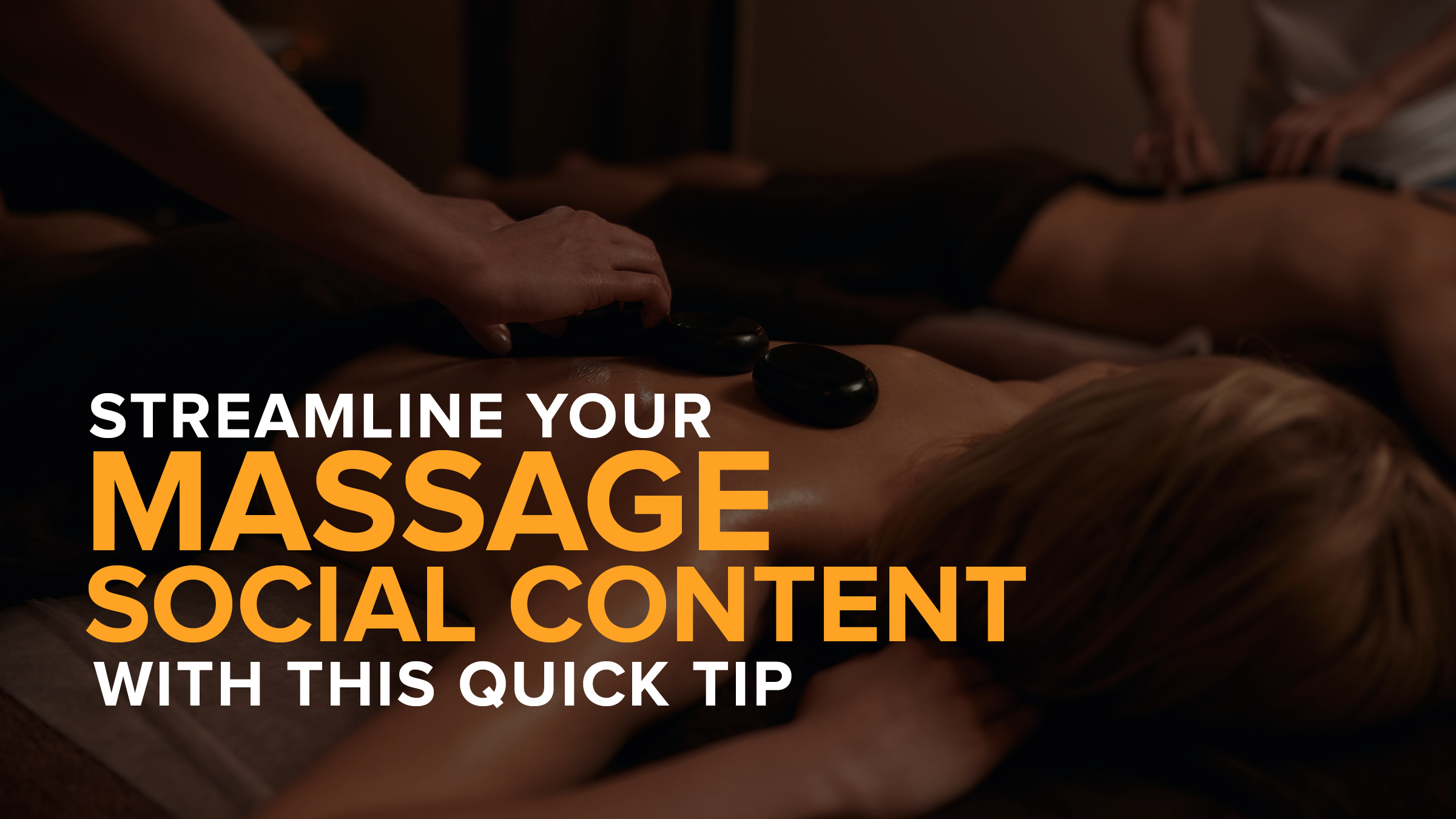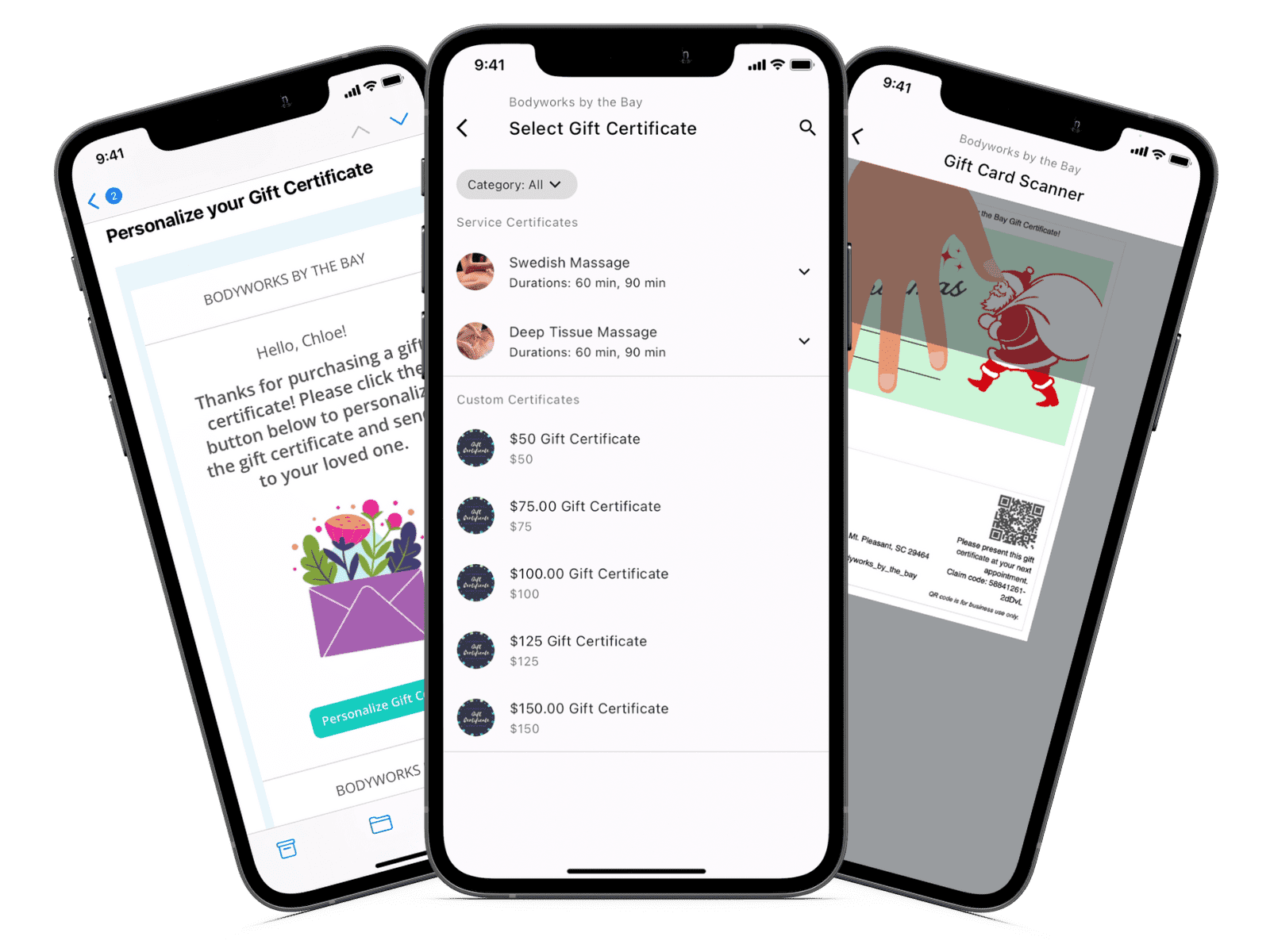The SEO Checklist: 5 Tips for Massage Therapists
- August 30, 2017
- - Massage therapists , Marketing , Practice management

So you have your massage practice ready to go. Your company is staffed with licensed therapists eager to roll up their sleeves. You’ve signed a lease to an office and invested in massage supplies, tables and oils. You’ve prepared business cards, launched a website, designed a logo and even rented a trade show booth for an industry event. The only thing missing? Leads, clients and…more leads.
Without customers, a business is just an idea. You need customers to generate revenue which you can use to pay your expenses and reinvest the remaining money back into growing your company. But how do you attract clients if you are starting a new business and can’t rely on word of mouth?
The short answer: SEO
SEO stands for search engine optimization. It’s the process of improving the online visibility of a website or promotional material in organic search results.
Why does SEO matter?
A survey by Vistaprint Digital found that 36% of consumers in the US find new businesses via online research. In fact, 34% of the individuals polled said they would be unlikely to shop at a business if it did not have a website.
However, having a basic website isn’t enough. According to a study by Chitika Insights in 2013, 91.5 percent of Google traffic is from page 1 search results. Only 4.8 percent users click through to the second page.

Furthermore, only 10 percent of clicks on page 1 of Google are on paid ads. This means the bulk of traffic goes to organic search results on page 1, which is precisely why SEO is so important. It’s imperative to rank on page 1 if you want customers to discover your business online.
Here are 5 SEO tips for massage therapists:
-
Choose the right keywords
Each important page on your website should target a keyword. Keywords are phrases people search on Google to find information.
For example, your home page could be optimized for the keyword “Tallahassee massage clinic”. When optimizing a page, it’s important to include the exact keyword as well as related terms. In this case, in addition to your primary keyword, you would also want to include related terms such as:
• “Massage therapist in Tallahassee”
• “Massage therapists in Tallahassee”
• “Tallahassee’s best massage clinic”
• “Massage practice in Tallahassee, Florida”This helps search engines better understand what your website is about. In the past, people would stuff their content with one specific keyword. Now because of latent semantic indexing, this can have your site penalized.
You want to select high value, low-difficulty SEO keywords. After all, what good is a keyword if it doesn’t help attract leads or you can’t rank for it? If your website is new and you’re just getting started with promotion, then it’s best to target long-tail keywords that you have a realistic chance of ranking for. As your site grows, you can adjust your content to compete for broader keywords that are likely to bring more traffic and business.
-
Google My Business
If you run a massage practice with a brick and mortar presence, then local SEO is going to be an important component of your marketing campaign. Local SEO will help you show up in the local pack results. The local pack is currently the three businesses that are listed above the organic search results. Here is what the local pack would look like if you searched “massage therapist in Chicago”.

You will need a Google My Business profile in order to show up in the local pack. The advantage of ranking here is customers can contact you with a single tap of their cell phone. Be sure to check out Google’s Google My Business guidelines before creating your company profile.
-
Consistent citations
Another factor that plays a role in local search results is local business citations. These are online directories such as Yelp, Angie’s List and Yellow Pages that list your business and contact information.
It’s critical that your information is consistent across all your citations. This means your company name, address and phone number should be exactly the same. Even an extra comma or word can have a negative impact. If your business moves locations you should update your citation listings with the new address and phone number.
In order to check the consistency of your listings, you can use tools such as Moz Local and BrightLocal.
WARNING: Avoid outsourcing your listings to syndicators such as Yext. It’s better to hire a local SEO expert or add your citations manually. Services such as Yext will require you to pay an expensive recurring monthly fee to maintain your listings. As soon as you stop paying, you will lose all your citations and local ranking power.
-
Commit to blogging
A blog is a must. You don’t need to be the best selling author. However, you do need to commit to posting content consistently. Even if it’s just one post per month, a blog carries a lot of SEO benefits.
First, it helps add topic relevancy to your website. Google is more likely to rank sites that have fresh content focused on a specific topic area. Blog posts also allow you to add internal links to your important pages, making it easier for search engines to crawl your site.
Second, a blog helps you establish credibility. It allows you to earn the trust of prospective clients by showcasing your expertise. A good blogging practice is to produce unique content that answers the questions of your potential clients. You will want to strike a balance between educational content and articles that promote your services.
Finally, a blog can help you earn external links from other websites. Other bloggers and editors who appreciate your articles will be more likely to reference it in their own work. These links boost the authority of your website.
-
Promotion
Producing content on your blog isn’t enough. You also need to promote your site. There are countless strategies you can utilize to do so. Here are a few:
• Help A Reporter Out

Help A Reporter Out (HARO) is an online freemium service that allows journalists to connect with business owners and experts for articles they are writing. You can pitch your ideas for inclusion in their posts. If your pitch is selected, you will often be quoted in the article and receive a link to your site. HARO is an effective tool for gaining PR exposure and backlinks.
• Guest Posting
Guest posting allows you to piggyback off the readership other sites have built up and get your company name in front of their audience, increasing your referral traffic. You will also usually be rewarded with a link to your site. The key is brainstorm original content and pitch your guest post ideas to other websites.
Here are a few massage blogs that accept guest posts from outside contributors:
Massage Therapist Development Centre



-
Social Media
A big part of outreach is promoting your content on social media. You should be actively sharing your content across different channels such as Facebook, Twitter, Instagram and LinkedIn.
It’s a good idea to join online communities related to massage on social media sites so you can share your articles and network with other industry professionals. They will, in turn, be more likely to link to your content on their own websites.
Social signals do likely play a role in search results rankings. That means the more likes and shares your content receives, the better.
SEO is a Long Term Game
There is no fast track to the top of Google search results. It requires effort and creativity. If you are a massage therapist busy run the day-to-day operations of your practice, then you may feel like you don’t have the time to focus on SEO.
The good news is SEO isn’t something that needs to take up your entire day. If you set aside a bit of time each week and follow these tips, you’ll be way ahead of most of the competition.
Author:
Henry Butler is a Lead Consultant at CanIRank, a SEO ranking software and digital marketing agency that consults small businesses and startup companies.

- Published: August 30, 2017
Grow and simplify your practice!
Related Posts
Recent Blog Posts
Categories
Categories Index ( 21 )
- Friday focus (9)
- Massage therapists (42)
- Massage therapy benefits (7)
- Marketing (157)
- Massagebook features (12)
- Healthy living (12)
- Press (2)
- Practice management (55)
- From our ceo (3)
- Software releases (23)
- Education (5)
- People focus (3)
- Types of therapy (1)
- Uncategorized (1)
- Massagebook (36)
- Massage therapy (4)
- Massage practice (1)
- Massagebook (1)
- Fun (1)
- Guest blog (1)
- Resources (2)







